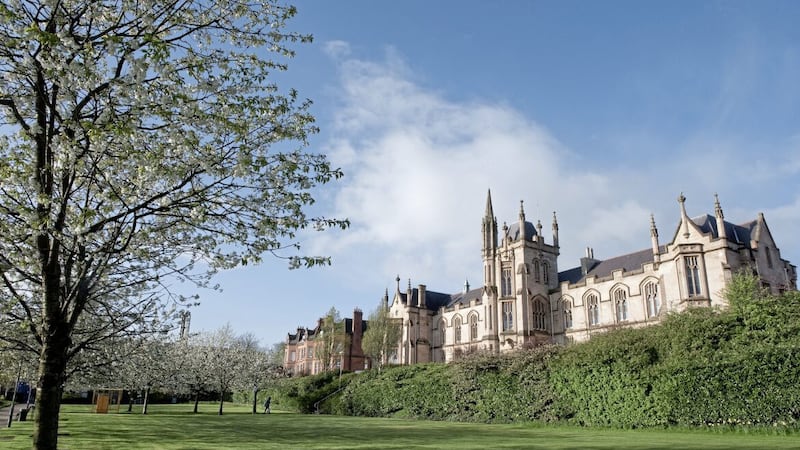“Nearly half of our young people ‘wish to leave NI’”, declared a front page headline on Monday’s Belfast Telegraph.
Other media outlets covered the same story, reporting 42 per cent of people aged 14 to 25 plan to leave Northern Ireland for study or work. Segregation, paramilitarism and limited career opportunities are among their greatest concerns.
The findings are in the latest report from Pivotal, a Belfast-based think-tank. It put a questionnaire online for two months, promoted it through youth organisations and received 259 responses.
While the report may chime with what many of us feel and contain interesting opinions, by no stretch of the imagination can its tiny, unweighted sample be described as a representative survey.
Pivotal produced a similar report two years ago, with a similar questionnaire for people who had left Northern Ireland to study.
It seems committed to the idea that our depressing politics is driving young people away.
Yet official statistics tell another story.
Almost half of all school-leavers in Northern Ireland now go on to higher education. Their internal migration around the UK and Ireland is straightforward to track. Government labour force surveys help complete the picture.
These comprehensive and reliable figures show Northern Ireland is unusually good at retaining its young people.
Over 70 per cent of ‘indigenous’ students starting a degree remain here to do so, the highest figure of any UK region except Scotland. Of the 30 per cent who leave, around half come back, similar to every UK region except London.
Over 90 per cent of all students at our universities stay here to work after graduation, a figure beaten only by Scotland and Dublin.
So Northern Ireland has no brain drain, certainly by British and Irish standards.
Our unique problem is a blocked drain in the opposite direction. In a typical year, 17,000 of our young people start university in Britain while fewer than 4,000 from Britain start courses here.
This is by far the greatest imbalance in the UK. We have a small brain gain across the border, with around 2,000 students heading south and 3,000 heading north, but this barely offsets our enormous net loss to Britain.
Attracting graduates from other regions to work here is a similar story.
Northern Ireland has the second-worst record for this after Scotland, although Scotland’s figure is misleading – it needs fewer graduates from elsewhere because it is even better than we are at holding onto its own.
Depressing politics may by one reason why young people leave Northern Ireland. However, as relatively few of them leave, this is not particularly useful information.
We should be more concerned that our reputation puts skilled and educated people off moving here from Britain, the Republic and further afield. This can only entrench social, economic and political stagnation.
There is some evidence that the Russell Group status of Queen’s University Belfast and the success of our creative industries is chipping away at the perception of Northern Ireland as the last place anyone from elsewhere wants to live.
The Irish government’s funding for Magee could mark new thinking on student numbers from the Republic.
It might be easier and more productive to develop these approaches than to try tackling any basic divisions driving our own young people away. It might even be a better approach to healing our divisions, if it can make us a more prosperous and outward-looking society.
Scotland keeps 90 per cent of its school-leavers at its own universities, compared to our 70 per cent figure. That suggests there is still considerable scope to retain more of our own young people.
To do so would require expanding our universities, as they are already rejecting many local applicants. That in turn means raising tuition fees – if Stormont were not subsidising fees at £4,710, half the English level, it would not have to cap places.
Alas, it is not quite that simple. Fees for Scottish students in Scotland are £1,820 a year, explaining much of the attraction of studying at home. Scotland can afford this in part because it has high numbers of students from the rest of the UK paying the full rate. Even then, there are concerns about a de facto cap on places.
Any policy for Northern Ireland needs to consider all these moving parts. Higher fees for more local places might also deter or drive some local students away.
Striking the optimal balance will require a better thinking and research than online polls and political cliches can provide.








